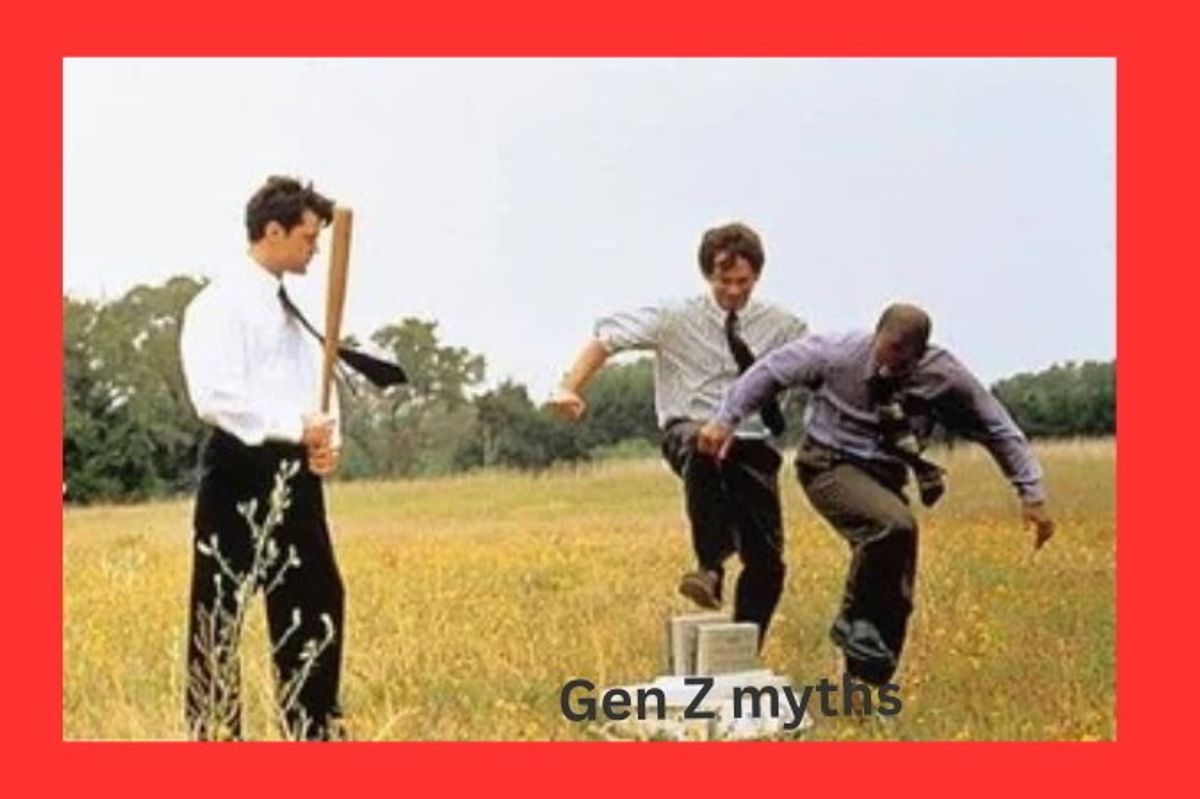People are obsessed with the 'Gen Z stare.' But Gen X says it all started with 'Office Space.'
Michael Bolton's legacy will not be denied.
Gen Xers argue that the "Gen Z stare" started with them and the movie 'Office Space'.
The Gen Z stare has been a hot topic recently among older generations. Gen Z, those born from 1997 to 2012, are being called out for their socially awkward "stare." However, Gen X (those born 1965 to 1980) are claiming ownership of the stare, and tying it to the classic movie Office Space, which premiered in 1999.
Over on Reddit, of member PhoneJazz shared his stance that Gen X actually originated the "Geb Z stare." "More proof that the 'Gen X stare' was a thing before the 'Gen Z stare', they wrote, with a screenshot of the film's iconic character Michael Bolton serving a stare.
The post was a humorous hit with fellow Gen Xers, with many who agreed and added their thoughts in the comments. "Gen x state is more aloof disgust, while gen z state is more not knowing where to place your eyes when not looking at an iPad. There’s less intent in a gen z stare," one wrote.

And another agreed, writing, "Except Michael here is showing disgust and contempt, it’s not the brain-is-buffering stare of Gen Z." It got a reply from another Gen Xer, who elaborated, "this is it. Z is buffering. X is calculating." And another noted, "I mean the GenZ stare always just struck me as kind of a blank 'I dunno, brain not processing' look. The GenX stare was always a 'Ima let you think about how f*ckin dumb the thing you just said to me was and give you a chance to feel stupid. Stupid.'"
Other Gen Xers agreed that the Gen X stare is not totally the same as Gen Z's, and involves a little more judgement than those given by Gen Z. Another explained, "Exactly! We give a derisive, disgusted state for a moment. The gen z stare shows a complete lack of…anything. I never knew what people were talking about bc I never witnessed it before last week," they shared, before sharing their story of experiencing a real-life Gen Z stare.

"I was checking out at a store and the cashier (male) just stared and said literally nothing the entire time until he asked if I needed a bag. As I was leaving I heard him talk normally to a coworker. It was completely rude and made him seem much less than intelligent," they wrote. "If he were a server I wouldn’t tip him. It was that bad. To me all it showed was rudeness and an inability to function with the public. Glad it’s rare around here."
Other Gen Xers defended Gen Z about their stare. "In a recent NYT article, Gen Zers claimed it was because they don’t suffer fools at all, and so if they don’t want to interact with you, they just shut down, even in service positions," one wrote. Another Gen Xer added, "Aren’t we going to cut Gen Z some slack for how COVID f*cked up their education and socialization?"

Ultimately, Gen X seemed in agreement with owning their version of the stare and highlighting the differences. One Gen Xer perfectly summarized it: "The GenX stare is sardonic, whatever type attitude. It usually came after an interaction turned sour. The Gen Z is blank. It isn't active disdain for what a 'customer' or teacher is demanding but is a lack of emotion or awareness of interaction with a human from the start," they wrote. "It's been described as passively watching, as if the world is a video. I don't think that tracks with our generation's attitude at all."

